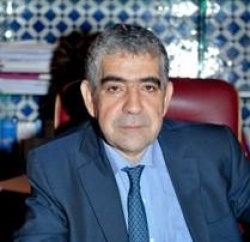Novinite.com
The advanced status of Morocco in terms of its improving human rights record is turning Morocco into a strategic partner to the European Union, Driss El Yazami, President of the Moroccan National Council of Human Rights, has said.
Speaking at a public lecture at the Sofia University that he held at the invitation of Bulgarian Vice President Margarita Popova, Yazami outlined the tremendous changes that global notions of human rights have undergone over the past few decades.
Before his lecture Morocco’s Ambassador to Bulgaria H.E. Latifa Akharbach said bilateral relations should develop in such a way that allows room for cooperation on human rights.
Mr El Yazami set the example of Morocco, where half of the articles in the 2011 Constitution include references to human rights, to point out that almost all countries have currently based on them the very fundamental of their legislation.
In his words, new instruments are emerging to promote human rights, with national institutions involved in international networks, and with other groups of countries, such as the Arab states, working on common tools, with the example of the future Arab Court of Human Rights.
“In [some] developing countries life expectancy has reached 80 years… [and] a new convention on the rights of elderly people is on the agenda,” Mr El Yazami added.
Challenges Facing Human Rights Protection
Mr El Yazami opined that there are three features of human rights which the present-day environment is putting at stake.
The first comes from communities that tend to dispute rights’ universal nature, a problem which requires from politicians human rights advocates to ensure that “every country should find its own pace”.
A second problem involves gender equality, which is still far from the internationally set targets in Marocco and a number of other states. Mr El Yazami added that his council was demanding that Morocco draw conclusions on its record every year to reduce inequality which is still present.
Migrants and asylum seekers constitute a third problem, numbering 240 million people globally. Their profile and their geography is now changing, as Mr El Yazami opines: “We are facing a process of… migrants traveling more and more [often] and crossing bigger and bigger distances. In Morocco we have detained people coming from Nepal. A Moroccan who wishes to go to the Netherlands would go via Istanbul, Bulgaria and from there the Netherlands.”
A bigger share of migrants now includes women, educated people, and younger people, with the emerging picture being quite different compared to previous decades.
Migration routes are now undergoing transformation as well, with an increased number of asylum seekers moving south, and not just choosing the US or Western Europe. The choice of thousands of people to leave their home country results in a brain drain, but could have a positive impact on their economies as well. For instance, the fact that there are 13 flights a day between Morocco and Paris allow “many young people [to] come and look for job opportunities in Morocco”.
To conclude, the speaker argued, a key challenge underpinning contemporary societies is “how to manage in a democratic and peaceful way” the cultural, linguistic and religious pluralism in order to turn it into an advantage for the respective societies.
Asked by a journalist about a draft law tabled in Marocco which could ban premarital sexual relations, he said that the Criminal Code draft was still under discussion. El Yazami made clear that the government had taken some 80% of the Council of Human Rights into account while amending the text.
Answering to other questions, the speaker stressed women’s role in society was already changing, with the Arab Spring resulting in lower birth rates, and an increase in the number of girls going to school (“more than half of [children in] the school system”. This requires more legal changes, including the end of child labor, allowing girls to start work at 18, after leaving school, and not at 15 as it is now, a process that is still subject to debate and discussion in the country.







